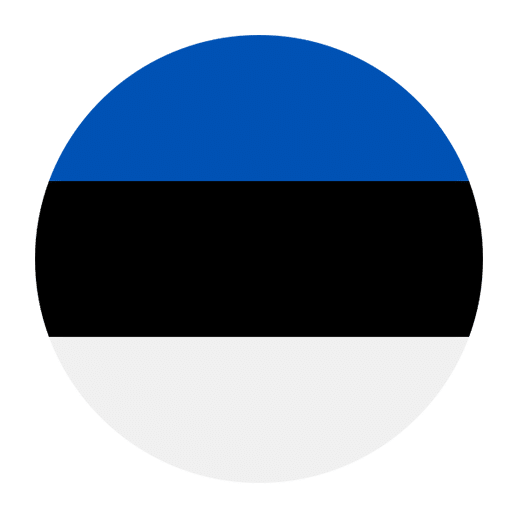Learning a new language can be both challenging and rewarding. Estonian, spoken by approximately 1.1 million people primarily in Estonia, is a fascinating language with its unique grammar and rich vocabulary. For English speakers, it might seem daunting at first due to its unfamiliar structure and sounds. However, with the right approach and dedication, you can quickly build a foundational vocabulary that will help you navigate everyday situations and conversations. This article aims to introduce you to essential Estonian vocabulary for beginners, focusing on words and phrases that will be most useful as you start your language-learning journey.
Basic Greetings and Phrases
One of the first steps in learning any language is mastering basic greetings and common phrases. These are essential for initiating conversations and making a good impression. Here are some fundamental Estonian greetings and phrases:
Hello – Tere
Goodbye – Nägemist
Good morning – Tere hommikust
Good night – Head ööd
How are you? – Kuidas läheb?
Thank you – Aitäh
Please – Palun
Yes – Jah
No – Ei
Excuse me – Vabandust
I’m sorry – Mul on kahju
My name is… – Minu nimi on…
Numbers and Counting
Understanding numbers is crucial for various daily activities, such as shopping, telling time, and understanding prices. Here are the basic numbers in Estonian:
One – Üks
Two – Kaks
Three – Kolm
Four – Neli
Five – Viis
Six – Kuus
Seven – Seitse
Eight – Kaheksa
Nine – Üheksa
Ten – Kümme
For numbers beyond ten, Estonian uses a combination of these base numbers. For example:
Eleven – Üksteist (literally “one-ten”)
Twelve – Kaksteist (literally “two-ten”)
Days of the Week and Months
Knowing the days of the week and months of the year is fundamental for scheduling and planning. Here they are in Estonian:
Days of the Week:
Monday – Esmaspäev
Tuesday – Teisipäev
Wednesday – Kolmapäev
Thursday – Neljapäev
Friday – Reede
Saturday – Laupäev
Sunday – Pühapäev
Months of the Year:
January – Jaanuar
February – Veebruar
March – Märts
April – Aprill
May – Mai
June – Juuni
July – Juuli
August – August
September – September
October – Oktoober
November – November
December – Detsember
Common Nouns and Pronouns
Learning common nouns and pronouns will help you form basic sentences and express yourself more clearly. Here are some essential ones:
Pronouns:
I – Mina
You (singular) – Sina
He/She – Tema
We – Meie
You (plural) – Teie
They – Nemad
Common Nouns:
Man – Mees
Woman – Naine
Child – Laps
House – Maja
Car – Auto
Dog – Koer
Cat – Kass
Book – Raamat
Water – Vesi
Food – Toit
Family Members
Understanding terms for family members is useful for describing relationships and talking about your family. Here are some key terms:
Father – Isa
Mother – Ema
Brother – Vend
Sister – Õde
Son – Poeg
Daughter – Tütar
Grandfather – Vanaisa
Grandmother – Vanaema
Common Verbs
Verbs are the backbone of any language, enabling you to describe actions and states. Here are some essential Estonian verbs for beginners:
To be – Olema
To have – Omama
To go – Minema
To come – Tulema
To see – Nägema
To eat – Sööma
To drink – Jooma
To speak – Rääkima
To read – Lugema
To write – Kirjutama
Basic Adjectives
Adjectives help you describe nouns and provide more details in your conversations. Here are some common adjectives in Estonian:
Big – Suur
Small – Väike
Good – Hea
Bad – Halb
Happy – Õnnelik
Sad – Kurb
Hot – Kuum
Cold – Külm
New – Uus
Old – Vana
Food and Drink
Food is an essential part of culture and daily life. Knowing food-related vocabulary will help you navigate restaurants, grocery stores, and conversations about meals. Here are some common food and drink terms:
Bread – Leib
Milk – Piim
Coffee – Kohv
Tea – Tee
Apple – Õun
Cheese – Juust
Meat – Liha
Fish – Kala
Vegetable – Köögivili
Fruit – Puuvili
Travel and Directions
When traveling, it’s crucial to know how to ask for directions and understand common travel-related terms. Here are some key phrases:
Where is…? – Kus on…?
How much is this? – Kui palju see maksab?
Left – Vasak
Right – Parem
Straight ahead – Otse edasi
Bus – Buss
Train – Rong
Airport – Lennujaam
Hotel – Hotell
Restaurant – Restoran
Emergencies and Health
It’s also important to know some basic vocabulary related to health and emergencies. These can be crucial in case you need help or medical assistance:
Help! – Abi!
Doctor – Arst
Pharmacy – Apteek
Hospital – Haigla
Medicine – Ravim
I am sick – Ma olen haige
Call the police – Kutsuge politsei
Fire – Tulekahju
Ambulance – Kiirabi
Practice Tips for Learning Estonian Vocabulary
Building your vocabulary is a continuous process that requires regular practice and exposure. Here are some tips to help you effectively learn and retain Estonian words:
Use Flashcards
Flashcards are a proven method for memorizing vocabulary. You can create your own or use online platforms like Anki or Quizlet, which offer pre-made Estonian vocabulary sets.
Practice with Native Speakers
Engaging in conversations with native Estonian speakers is one of the most effective ways to learn. This will not only help you practice vocabulary but also improve your pronunciation and understanding of the language in context.
Immerse Yourself
Immerse yourself in the language as much as possible. Watch Estonian movies, listen to Estonian music, and read books or articles in Estonian. This will expose you to new vocabulary and help reinforce what you’ve learned.
Use Language Apps
Language learning apps like Duolingo, Babbel, and Memrise offer Estonian courses that can help you practice vocabulary and grammar interactively.
Label Your Environment
Label objects around your home or workspace with their Estonian names. This constant exposure will help you remember the words more easily.
Set Realistic Goals
Set achievable goals for your vocabulary learning. For example, aim to learn five new words each day and use them in sentences to reinforce your understanding.
Review Regularly
Regular review is essential for long-term retention. Periodically go back to previously learned words and phrases to ensure they stay fresh in your memory.
Join Language Groups
Join online or local language groups where you can practice Estonian with other learners. Sharing your progress and challenges with others can be motivating and provide additional learning opportunities.
Conclusion
Learning Estonian can open up a world of opportunities, from exploring Estonia’s rich culture and history to connecting with native speakers. By starting with the essential vocabulary outlined in this article, you’ll build a strong foundation that will make your language-learning journey more enjoyable and effective. Remember to practice regularly, immerse yourself in the language, and most importantly, have fun with it. With dedication and persistence, you’ll be speaking Estonian with confidence in no time.

